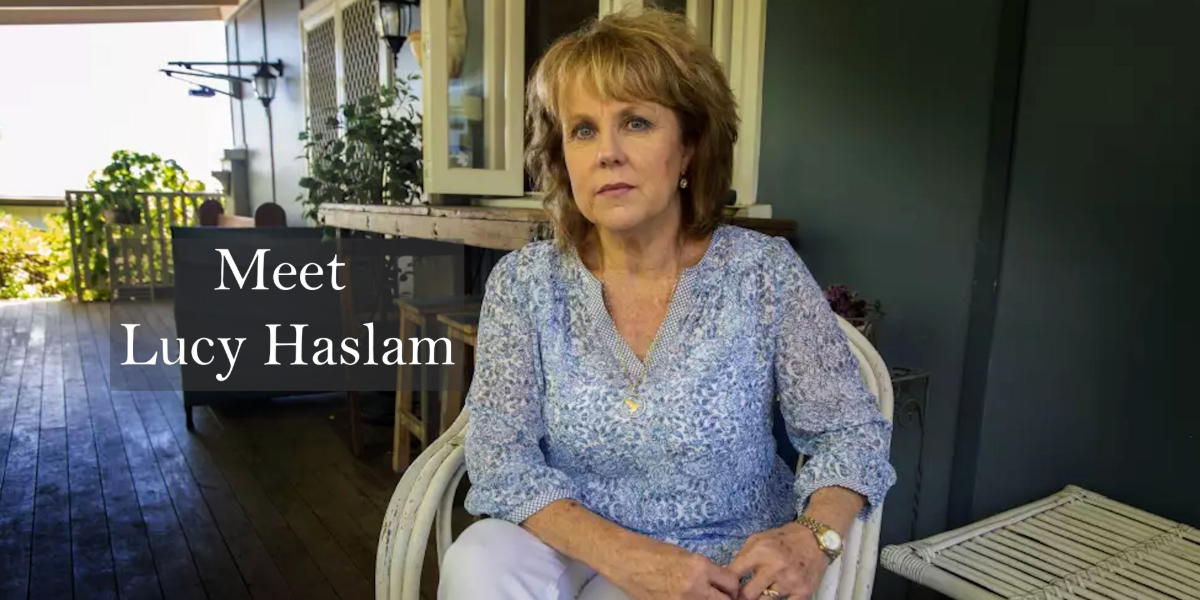For many of us, Lucy Haslam is a name that rings loud in the New England. Her work in health began as a nurse but grew quickly when she and her husband Lou decided to venture into in-home nursing care in Tamworth.
This venture grew quickly. Originally Lucy was the business, but that business grew rapidly to include 50 staff and more than 200 patients. Those patients included low through to high support clients such as quadriplegics, acquired brain injury, physical and intellectual disabilities, frail aged and palliative care.
Lucy and Lou had empathy and a deep understanding the industry, and all appeared to auger well.
Lou, a veteran police officer who had spent more than 30 years investigating drug related crime in Sydney and the Northwest of NSW, and Lucy had a son, Dan. In 2010, Dan was a young man who had a passion for life, but that passion was quelled when he was diagnosed with terminal bowel cancer.
For five years, Dan battled the cancer, but he also had a battle with the therapy and management of the cancer. Lucy says, “Dan was struggling with chemotherapy induced nausea and vomiting”. The therapy and the nausea were an accepted part of the treatment. As Dan’s cancer ravaged his body, the side effects became almost unbearable. He looked for relief anywhere he could find it, but there was a desert of traditional and sanctioned relief for his condition.
A close friend of Dan’s had used cannabis with his own battle with cancer. He suggested that Dan should try it. Dan knew it was illegal in Australia, and he believed his mother Lucy and father Lou with their background in health and policing, would not agree to him using it. He told his friend, no.
Dan’s friend decided to take matters into his own hands. He talked to Lucy directly about his experience with cancer and how cannabis helped him and may help their son.
Lucy was so desperate to help her son, she enthusiastically told Dan’s friend “Yes! Absolutely, 100%. Bring it around, let’s give it a go”. Dan’s father Lou was a father first and agreed without hesitation.
“It worked” says Lucy “It worked so well that it stopped his nausea and vomiting, but we couldn’t leave it at just that… it was wrong that it was illegal”.
This inspired Lucy to learn more about cannabis. “I realised that in hindsight, I thought I knew about it, but I actually didn’t”. Lucy says, “I only knew what I had been taught, and that was based on misinformation”.
Tamworth, New England, Australia and the world
Lucy had the bit between her teeth, and with the support of her family, friends and colleagues in Tamworth, and eventually Australia and abroad, she drove the changes in legislation to legalise Medicinal Cannabis. This was a fight for not only her son’s right to improve his quality of life, but for thousands of Australians, including children.
On Dan’s deathbed Lucy promised him to make access to cannabis better for Australians.
There have been changes to legislation, but the resistance is still strong. Lucy says of those who are blocking the use of medicinal cannabis.
“There are people who don’t know what they don’t know, but in this space, there are people who don’t want to know what they don’t know”.
This an in ongoing cause for Lucy, but she says, “We have no commonsense in this space, it’s a commonsense vacuum”.
It is a complex political football, but with voices calling for all Australians to have access to Medicinal Cannabis, it is becoming harder for those who don’t understand the value of Medicinal Cannabis to block those who use logic, science and research to help with the management of cancer treatment, but they are still there, blocking.
The future is unknown, but with people like Lucy Haslam, the future for cancer patients, their families and friends, is looking more bearable and brighter.
Lucy Haslam is the Co-Founder, Ambassador & Life Member of the Australian Medicinal Cannabis Association (AMCA) and recently the recipient of The Inaugural Olivia Newton John Service to Industry Award 2024.
You can see the entire interview on our YouTube channel: New England Today

